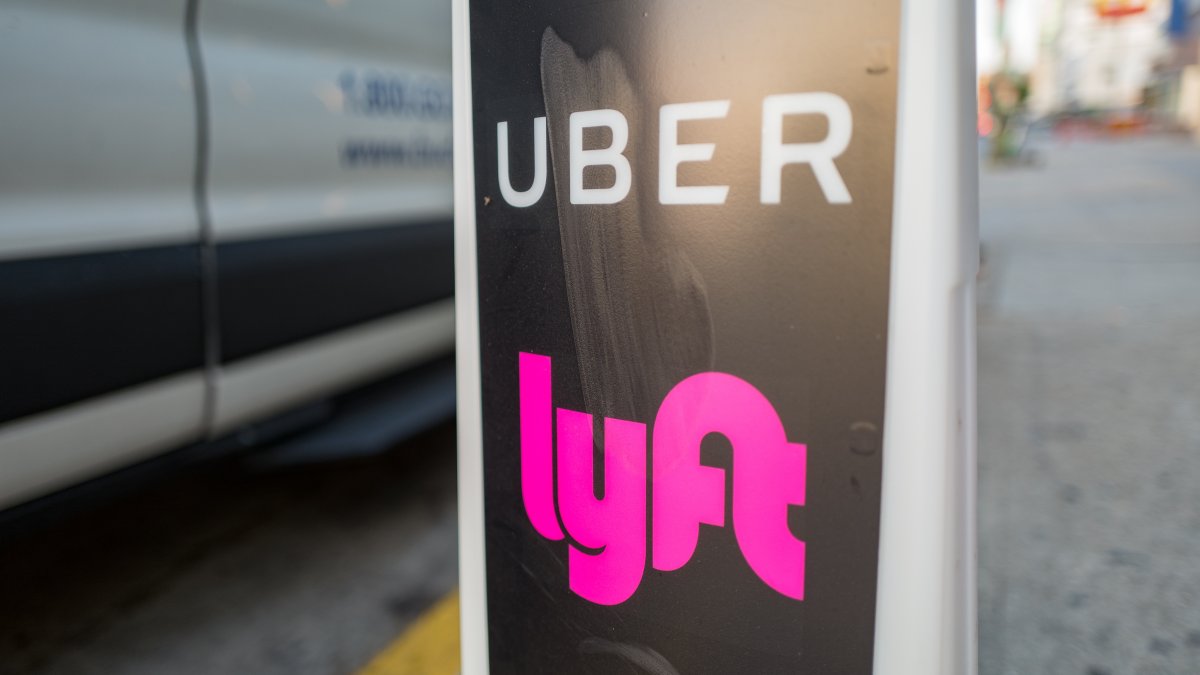SacramentoRide-sharing and app-based delivery companies like Uber and Lyft can continue to treat their California drivers as independent contractors, a state appeals court ruled Monday, allowing the tech giants to circumvent other state laws requiring protection and benefits for workers.
The ruling primarily upholds a voter-approved law called Proposal 22, which says drivers from companies like Uber and Lyft are independent contractors and not eligible for benefits like paid sick leave and unemployment insurance. A lower court ruling in 2021 had declared Proposition 22 illegal, but Monday’s ruling overturned that ruling.
Uber has released data on the most unique and rare items that have been lost on rides, including a “slip bucket” and a turtle.
“Today’s decision is a victory for app-based workers and the millions of Californians who voted for Proposition 22,” said Tony West, Uber’s chief legal officer. “We are happy that the court respected the will of the people.”
The decision is a defeat for the unions and their allies in the state legislature, which they passed a law in 2019 that forces companies like Uber and Lyft to treat their drivers like employees.
“Today, the Court of Appeals chose to support companies that are powerful over workers, allowing companies to evade our state labor laws and undermine our state constitution,” said Lorena González Fletcher, leader of the California Federation of Labor and former state deputy. who drafted the 2019 law. “Our system is broken. To say we are disappointed with this decision would be an understatement.”
The ruling was not a total defeat for unions, as the court ruled companies could not prevent their drivers from joining a union and collectively bargaining for better working conditions, Mike Robinson said, one of the drivers who filed a lawsuit challenging the proposal. 22
“Our right to unite and bargain collectively creates a clear path for drivers and delivery people to be held accountable to giant corporations,” he said. “But make no mistake, we still believe Proposition 22, in its entirety, is an unconstitutional attack on our fundamental rights.”
The California Legislature passed a law in 2019 that changed the rules determining who is an employee and who is an independent contractor. This is an important distinction for businesses because employees are covered by a wide range of employment laws that guarantee them certain benefits, unlike independent contractors.
Although the law applies to many industries, it has had the greatest impact on app-based transportation and delivery businesses. His business is to hire people who use their own cars to drive people and make deliveries. Under the 2019 law, companies would have to treat these drivers as employees and offer certain benefits that would significantly increase business expenses.
Companies will be able to hire drivers without having to pay them compensation.
In November 2020, voters agreed to exempt app-based trucking and delivery companies from the 2019 law by approving a ballot measure.
The proposal included ‘alternative benefits’ for drivers, including a guaranteed minimum wage and health insurance subsidies if they worked an average of 25 hours a week. Companies like Uber, Lyft and DoorDash have spent $200 million on a campaign to make it happen.
Three drivers and the Service Employees International Union filed a lawsuit, arguing that the ballot proposal was illegal in part because it limited the power of the state legislature to change the law or pass laws on workers’ compensation programs. In 2021, a state judge agreed with them, ruling that companies like Uber and Lyft were not exempt.
On Monday, a state appeals court overturned that decision, allowing companies to continue treating their drivers as independent contractors.
The decision may not be the final decision. The Service Employees International Union could still appeal the decision to the California Supreme Court, which could decide to hear the case.
“We will consider all of these options when deciding how to ensure that we continue to fight for these workers,” said Tia Orr, executive director of SEIU California.

